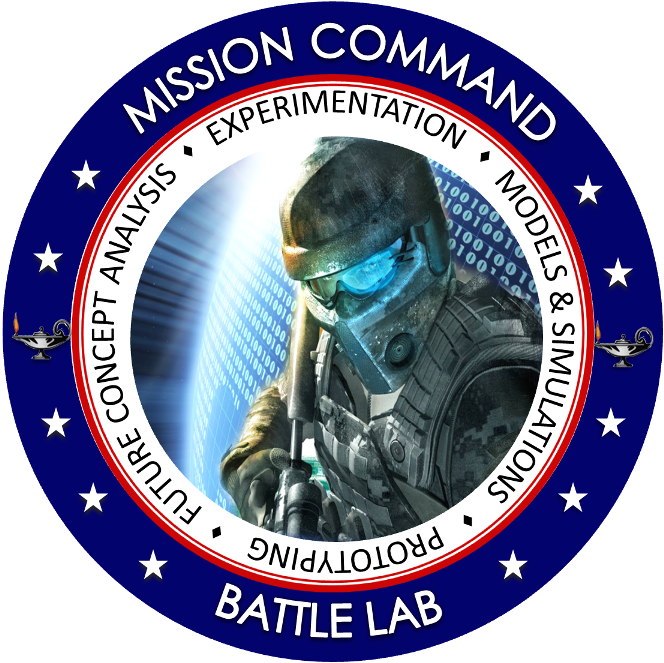- CAC Home
-
About CAC
-
CAC Senior Leaders
Commanding GeneralCombined Arms CenterLTG Milford H. Beagle Jr.Deputy to the
Commanding GeneralCombined Arms CenterMr. Gregg Thompson
Command Sergeant MajorCombined Arms CenterCSM Stephen Helton
Chief of StaffCombined Arms CenterCOL Brandon SmithCommand Chief Warrant OfficerCombined Arms CenterCW5 Carlos Terrones
Deputy
Commanding GeneralCAC ARNGBG Charles MorrisonDeputy
Commanding GeneralCAC USARVACANTDeputy Commanding General - EducationArmy UniversityBG David FoleyDeputy Commanding GeneralCAC - TrainingBG Jeremy WilsonDirectorMission Command Center
of ExcellenceCOL Bryan Babich
-
CAC Senior Leaders
-
Organizations
-
CAC HQ
-
CAC Subordinate Organizations
- The Army University (Army U)
- Combined Arms Center - Training (CAC-T)
-
Mission Command Center of Excellence (MCCoE)
- Leadership
- Mission Command Resources
- SharePoint
- Army Joint Support Team (AJST)
- Air Land Sea Space Application Center (ALSSA)
- Combined Arms Doctrine Directorate (CADD)
- Center for Army Leadership (CAL)
- Directorate of Training (DOT)
-
Force Modernization Proponent Center (FMPC)
- Command and Control Integration (C2I)
- Security Force Assistance Proponent (SFAP)
- Contact Us
- Peacekeeping & Stability Operations Institute (PKSOI)
-
Key Partner and Supporting Units
- » Fort Leavenworth Garrison
- » Presidio of Monterey Garrison
- » 902d Military Intelligence Group
- » Munson Army Health Center (MAHC)
- » Joint Center for International Security Force Assistance (JCISFA)
- » U.S. Disciplinary Barracks
- » Community Health Promotion Council (CHPC)
- » Red Team Education
- Contact Us
- Training & Doctrine Command (TRADOC)
- Mission Command Capability Development and Integration Directorate
- 15th MP Brigade
- Centers of Excellence
- Branch Schools
-
Non-Branch Schools
-
Command and General Staff College (CGSC)
- Leaders
- Mission & Vision
- Students
-
Command and General Staff School (CGSS)
- Inbound Class Information
- Department of Distance Education (DDE)
- Department of Command and Leadership (DCL)
- Department of Sustainment and Force Management (DSFM) (Previously DLRO)
- Satellite Campus Program
- Air Force Element (AFELM)
- Navy Element (NAVELM)
- Marine Corps Element (MCELM)
- International Military Student Division (IMSD)
- Contact Us
- School of Advanced Military Studies (SAMS)
- School for Command Preparation (SCP)
- Sergeants Major Academy (SGM-A)
- CGSC Degree Programs
- Registrar
- CGSC News Archive
- Contact CGSC
-
Warrant Officer Career College (WOCC)
- About USAWOCC
- Warrant Officer Program
- Warrant Officer Blackboard Enrollment
- Warrant Officer Courses
- Benefits, Pay, and financial Matters
- Fort Rucker Information
- News/Media
- Retirement/Transition Links
- Warrant Officer Career College Contact Information
- Center for the Army Profession and Leadership (CAPL)
- Western Hemisphere Institute for Security Cooperation (WHINSEC)
- SHARP Academy
- U.S. Army Sergeants Major Academy (USASMA)
- The U.S. Army Inspector General School (TIGS)
-
Command and General Staff College (CGSC)
-
CAC HQ
- References
- Products & Resources
Mission Command Battle Lab (MCBL)
CDID Home Mission Command Battle Lab (MCBL)

Mission
MCBL mitigates risk to current and future Army forces by examining and evaluating emerging concepts and technologies through analytical experimentation, studies, prototyping, and network integration, while simultaneously informing the combat development and acquisition processes.
Purpose
The MCBL purpose is to facilitate and expedite the effective development, assessment and delivery of improved Mission Command Capabilities and enhance capability integration across the Warfighting Functions to the Warfighter.
Key Tasks
- Explore and generate unique and innovate ideas to address concepts & capabilities
- Conduct experiments to assess & validate concepts for required capability integration
- Integrate Army experimentation with JIM partners
- Integrate Army experimentation with Capabilities Development partners
- Assess & synthesize experiment results to generate DOTMLPF solutions; inform concepts, capabilities, force design, force employment, senior-leader decisions, etc.
- Identify capability gaps and opportunities to prioritize and leverage required capabilities to drive the acquisition process
- Identify capability gaps and opportunities to improve future force effectiveness executing Multi-Domain Battle (MDB) in a complex environment
Execution
MCBL performs locally in Fort Leavenworth, KS as well as distributed nationally with all TRADOC Centers of Excellence, sister-service experimentation centers, and leverage capabilities to integrate multinational partners in Army experimentation.
End State
Provide Army Senior Leaders with a high-payoff institutional intellectual engine of change that bridges the gaps with the Science and Technology community, the generating force, and operational Force. MCBL serves as the conceptual analytical integrator and architect for Mission Command experimentation. MCBL experimentation drives DOTMLPF solutions for current and potential future Mission Command problems for the Army of the future.

